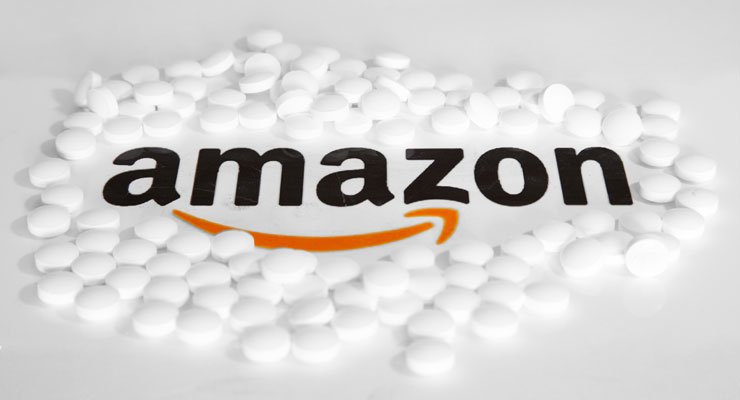Features
Selling Supplements on Amazon: Tips to Safeguard Your Products
Studying Amazon’s compliance checklist can help avoid issues for your brand.

By: Sean Moloughney
Editor, Nutraceuticals World

The Amazon marketplace is an excellent place to grow your brand. However, the validity of a product is sometimes questionable. As the scope of the market grows, so does the concern regarding what is genuine. Counterfeit products inadvertently getting in the hands of honest business owners can make them look bad—and thus hurt future sales due to bad reviews.
Sadly, this is so common no one is exempt, not even in the supplement industry. But there are ways to avoid this trap. Let’s discuss what to look out for so as not to get duped.
Upping the ‘Anti’ On Counterfeit Packaging
According to an article published by Globe Newswire in December of 2020, experts projected the value of the anti-counterfeit packaging technologies market will reach $420.97 billion by 2028. While in 2019, North America led the anti-counterfeit packaging technologies market, Asia-Pacific is estimated to be the fastest-growing region between now and 2028.
Consumers need to be aware that counterfeit products can cause extreme economic damage to any region—or any country. That is why anti-counterfeit packaging technologies are proven to be essential to manufacturers, governments, and consumers. Currently, coding and printing technology are leading the market and expect to remain dominant in the future. Holograms also demonstrated their barrier to counterfeiting, along with their packaging. These technologies are ideal for preserving your brand’s image, promoting customer loyalty, and also authenticating your product’s exclusivity as they help eliminate fraudulent use of your brand.
Amazon’s Project Zero and ACCU
To defeat fraud, Amazon created Project Zero. First introduced in 2019, Project Zero’s automated protections continuously scanned Amazon’s online stores, searching billions of daily listings and removing questionable products.
This program is available to Amazon online stores in the U.S., U.K., France, Italy, Spain, Germany, Japan, India, Mexico, Canada, Australia, Brazil, Netherlands, Saudi Arabia, Singapore, Turkey, and the United Arab Emirates. According to Amazon, over 10,000 brands—ranging from small businesses to global retailers—have enrolled in the Project Zero program. Participants include Arduino, BMW, ChessCentral, LifeProof, OtterBox, Salvatore Ferragamo, Thunderworks, Veet, and Vera Bradley.
Amazon’s Project Zero also offers a self-service tool so that brands do not have to contact them directly to eradicate the bogus listings. Project Zero offers an exclusive code on each SKU that Amazon scans, which helps confirm that the product is legitimate. It will also stop counterfeits before getting to customers. Further protecting the interests of consumers and third-party sellers or brands, the Amazon Counterfeit Crime Unit (ACCU) takes legal action against fraudsters.
To enroll your brand in Project Zero, Amazon requires you to be in its Brand Registry and have a government-registered trademark. Also, you must be the rights owner of the trademark, have an Amazon account with access to the Brand Registry, and submit reports of potential trademark infringements with at least a 90% acceptance rate in the last six months.
Selling on Amazon: Policies, Requirements & Agreements
Amazon is one of the most prolific digital retailers, with its most popular geographic location being the U.S. In fact, Amazon’s sales average out to more than $17 million per hour in the U.S. Amazon has made the vitamin industry much more visible and broadened its base. By listing products on Amazon, brands have access to a customer base in excess of 310 million people.
All Amazon sellers are provided with its all-encompassing regulated list to ensure that all products listed on its marketplace meet the same standards. Brand owners wanting to sell on Amazon must ensure their products meet requirements for packaging, labeling, detail page, and ingredients. Companies must also be aware of Amazon’s prohibited products that are restricted because they do not meet the checklist requirements. Studying Amazon’s compliance checklist can prevent future issues for your brand’s supplements. And, as a seller, you must keep up with Amazon as policies are updated continuously.
With over 80 years of nutraceutical industry experience, NutraScience Labs has contract manufactured, labeled, packaged, and fulfilled high-quality vitamin and supplement products for thousands of brand owners—many of which are best-sellers on Amazon. For more information about services and capabilities, call 855-492-7388 or visit www.nutrasciencelabs.com to request a free manufacturing price quote.
About the Author: With 21 years of direct-to-consumer and business-to-business experience, Vincent Tricarico is a respected executive in the dietary supplement industry and is well known for his ability to consistently build and grow successful teams that produce results. He currently serves as Executive Vice President for Twinlab Consolidation Corporation and NutraScience Labs, where he oversees sales, marketing, and operations.


